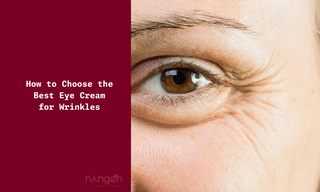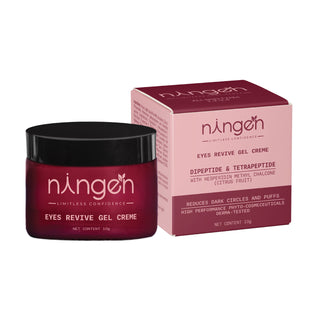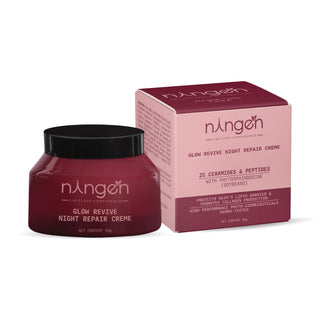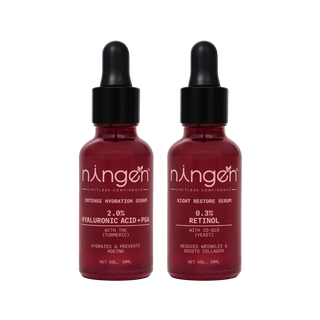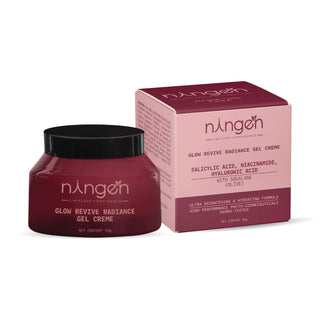Tired of fine lines stealing your glow? The right eye cream can turn back time—but only if you choose wisely. Skip the guesswork: here’s how to find the best eye cream for wrinkles. Keep reading.
In This Article;
The Importance of Eye Creams for Wrinkles
How Eye Creams Actually Work on Wrinkles: A Dermatologist's Breakdown
Eye Creams for Wrinkles: How to Find Your Perfect Match?
The Importance of Eye Creams for Wrinkles
The delicate eye area thins with age, losing collagen and moisture faster than the rest of your face. Targeted eye creams deliver concentrated actives (like peptides and hyaluronic acid) to:
✔️ Plump fine lines
✔️ Stimulate collagen
✔️ Lock in hydration
✔️ Protect from environmental damage
Skip them, and wrinkles deepen. Invest early for lasting results!
How Eye Creams Actually Work on Wrinkles: A Dermatologist's Breakdown
The delicate eye area thins with age due to:
• Collagen/elastin breakdown (25% loss by age 40*)
• Slower cell turnover (leads to crepey texture)
• Weaker moisture barrier (causing dehydration lines)
How Ingredients Work:
1️⃣ Retinol
→ Stimulates collagen Type I & III production
→ Increases epidermal thickness by 30% in 12 weeks**
2️⃣ Peptides
→ Signal fibroblasts to produce new collagen
→ Reducing wrinkle depth by 26% (palmitoyl pentapeptide-4)
3️⃣ Hyaluronic Acid
→ Binds 1000x its weight in water
→ Plumps fine lines instantly via cross-linked polymers
4️⃣ Caffeine + Hesperidin
→ Constricts blood vessels (reduces puffiness by 20%***)
→ Improves microcirculation for brighter under-eyes
Pro Tip: Look for:
• Encapsulated retinol (gentler release)
• Ceramide NP (repairs barrier function)
• SPF 30+ (prevents UV-induced collagen damage)
Source: *Dermatology Times, **Journal of Cosmetic Dermatology, ***British Journal of Pharmacology
Eye Creams for Wrinkles: How to Find Your Perfect Match?
The delicate eye area shows aging first, demanding targeted care. Choosing the right eye cream can combat wrinkles, dark circles, and puffiness. Let's find out how to pick the perfect formula for youthful, refreshed eyes.
Determining Your Skin Type
1. Dry Skin
– Look for eye creams with rich, nourishing ingredients like Hyaluronic Acid, Shea Butter, and Ceramides
– Choose formulas that deeply hydrate and prevent moisture loss
2. Oily or Acne-Prone Skin
– Go for lightweight, non-comedogenic (won’t clog pores) formulas
– Ingredients like Peptides, Niacinamide, or Green Tea Extract are great
3. Sensitive Skin
– Choose fragrance-free, gentle formulas with Soothing Agents like Aloe Vera, Chamomile, or Cica
– Avoid retinol unless it’s a low-strength or encapsulated form
4. Combination Skin
– Use a balanced formula that hydrates without feeling greasy
– Look for multi-tasking ingredients like Peptides and Vitamin E
5. Mature or Aging Skin
– Go for anti-ageing powerhouses like Retinol, Collagen-boosting peptides, and CoQ10
– Look for products that target fine lines, crow’s feet, and sagging.
Also read: How to know your skin type?
Identifying Your Skin Concerns
Are you struggling to identify your specific skin concerns? Knowing exactly what your skin needs is the first step toward achieving a radiant complexion. Here's how you can zero in on your skin issues:
-
Assess Your Skin Type: Are you dealing with dry, oily, combination, or sensitive skin? Knowing your type will help you select products that complement rather than aggravate your skin. We’ve already discussed this before.
-
Analyze Problem Areas: Take note of specific concerns like wrinkles, fine lines, acne, or hyperpigmentation. Identifying these issues will guide your skincare choices effectively.
-
Observe Changes: Notice how your skin reacts to different weather conditions, diets, or stress. Seasonal changes can often trigger new concerns that need addressing.
-
Understand Aging Signs: As you age, your skin loses elasticity and moisture. Recognize the onset of wrinkles and lines for targeted anti-aging treatments.
-
Consult a Professional: If you're uncertain or overwhelmed, consult a dermatologist. An expert’s insight can save you time and money in the long run.
Key Ingredients to Look For Wrinkles
-
Retinol – Boosts collagen, reduces fine lines (use gentle formulas for eyes).
-
Peptides – Stimulate collagen/elastin for firmer, more elastic skin.
-
Ceramides – Strengthen the skin barrier to lock in moisture and smooth wrinkles.
-
CoQ10 – Fights free radicals and energizes skin cells.
-
Hesperidin Methyl Chalcone – Improves circulation to reduce dark circles and puffiness.
-
Hyaluronic Acid – Plumps fine lines with intense hydration.
-
Niacinamide – Brightens, soothes, and strengthens the skin barrier.
Choose based on your skin’s needs!

Considering Skin Sensitivity
Choosing an Eye Cream for Sensitive Skin? Keep It Safe & Effective:
-
Patch Test First – Apply a small amount to check for irritation.
-
Go Hypoallergenic – Minimizes allergic reactions.
-
Skip Fragrances – Can cause redness or stinging.
-
Soothing Ingredients – Look for chamomile, aloe vera, or hyaluronic acid.
Gentle care = Better results!
Fragrance-Free and Chemical-Free Options
The delicate eye area needs gentle yet effective care. Many now prefer fragrance-free, chemical-free eye creams to avoid irritation while targeting wrinkles. Here’s what to look for:
✔ Soothing Natural Extracts – Green tea, chamomile, and aloe vera calm skin while fighting aging.
✔ Vitamins C & E – Brighten and protect against environmental damage.
✔ Peptides + Hyaluronic Acid – Plump fine lines and boost hydration.
Always check labels and choose transparent brands for safe, visible results!
Common Mistakes to Avoid
Picking the right eye cream doesn’t have to be tricky. Focus on these key factors:
✔ Power Ingredients – Retinol, peptides & hyaluronic acid boost collagen and hydration.
✔ Skin-Type Match – Soothing formulas for sensitive skin, lightweight gels for oily types.
✔ SPF Protection – Shields delicate skin from sun damage.
✔ Smart Budgeting – Quality options exist at every price point.
Test wisely and check reviews for proven results!
Smart Budgeting for Eye Creams
You don't need to overspend for effective wrinkle care. Here's how to maximize value:
✔ Key Ingredients First – Retinol, hyaluronic acid & peptides work at any price
✔ Cost-Per-Use – Larger sizes often offer better long-term value
✔ Trusted Budget Brands – Many drugstore options deliver clinical results
✔ Seasonal Sales – Stock up during holiday promotions
Pro Tip: Sample sizes let you test before investing in full products
Final Insights
Finding the perfect eye cream for wrinkles is easier when you know what to look for—your skin type, key ingredients, and smart budgeting. With consistent use, the right formula can transform your eye area. Did this guide help simplify your search? We’d love to hear your thoughts—share your experiences or questions in the comments!
TLDR
The Smart Buyer’s Guide to Anti-Aging Eye Creams
Science-Backed Essentials:
• Retinol & Peptides – Clinically proven to reduce wrinkle depth
• Hyaluronic Acid – Instant hydration for fine line plumping
• Antioxidants (Vit C/E) – Protect against environmental damage
Skin-Type Solutions:
-
Dry Skin: Creams with ceramides
-
Oily Skin: Lightweight peptide gels
-
Sensitive Skin: Fragrance-free with niacinamide
Pro Tips:
✓ Layer SPF eye cream under makeup
✓ Apply retinol formulas only at night
✓ Store eye creams in the fridge to reduce puffiness
Question for Our Readers:
"Which ingredient has made the most visible difference in your eye area?"
Frequently Asked Questions
Q1. Can eye creams really reduce wrinkles?
Yes, when formulated with peptides, hyaluronic acid, or retinol. Studies show:
-
Peptides reduce wrinkles by 26% in 8 weeks (Journal of Cosmetic Dermatology)
-
Hyaluronic acid plumps lines instantly by 20% via hydration
Q2. Should I use different eye creams for day and night?
Ideal routine:
-
AM: SPF 30+ eye cream with antioxidants (vitamin C/E)
-
PM: Retinol or peptide cream for collagen repair
Q3. How often should I apply eye cream for wrinkles?
-
Twice daily (AM/PM) for best results.
-
AM: Hydrating formula with SPF
-
PM: Active ingredients like retinol (2-3 nights/week to start, then daily as tolerated)
-
Pro Tip: Use your ring finger to gently tap (don’t rub) to avoid tugging delicate skin.


